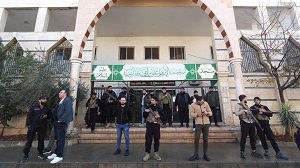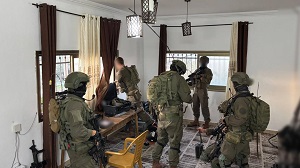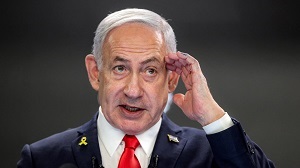‘Vote buying a crime and sin of highest degree’
The Jordan Times
AMMAN — As parliamentary elections draw near, religious scholars have reiterated that vote buying is “a crime and sin of the highest degree”.
The Kingdom’s Grand Mufti, Sheikh Abdul Kareem Khasawneh, said in a statement on Saturday that rigging elections by vote buying “denies citizens’ constitutional right to a fair and qualified representation under the Dome”.
To enjoy a “strong, competent elected council”, Khasawneh said elections’ results must be based on “a free and honest voting that allows citizens to create the future they want”.
The House of Representatives has “great duties and burdens, most important of which is preserving the interests of the Kingdom and its citizens, so to give that responsibility to an unqualified, incompetent person is a mismanagement of God’s trust,” added the Grand Mufti.
Deeming vote buying as “a serious crime and an evident sin,” Khasawneh also noted that “those who resort to corrupt money to buy votes are incompetent”, and that those who accept the money in exchange for their votes will be “in direct violation of the religious scripture that states that ‘testimony will be written and asked about’.”
“Testimony, which in this case is represented through voting, is not the subject of sale or bargaining,” he added.
A citizen, who preferred to remain unnamed, told The Jordan Times over the phone that in his place of residence in Amman, young people are being recruited to offer residents of the area money to vote for a certain candidate.
“Corrupt candidates target young people to work for them in their campaigns because they can be easily manipulated. Every year, a candidate promises a group of young men hundreds of dinars in exchange for doing his dirty work, and every year, these corrupt candidates refuse to pay whoever worked for them,” the citizen added.
With regard to gifts that the candidates give to voters in exchange for their votes, Khasawneh emphasised that this is also forbidden, as the vote being influenced by gifts is still considered “forged testimony”.
Mahdi Awad, a 23-year-old citizen, who previously worked in election campaigns, said that some of the candidates he worked for “came up with all kinds of ways to buy votes, including giving voters half of a JD50 bill before the ballot and the other half after the voter showed the indelible ink mark on their finger”.
“What was funny about this is that since there was no way for the candidate to know if the people whom he bought their votes actually voted for him, he would make them swear on the Koran, which is ironic because he was committing a sin by being dishonest and then asking people to be honest,” said Awad.
“Most of my friends later told me that they took the money and voted for someone else, so this whole process of vote buying is both dishonest and ineffective,” he added.
Latest News
-
 Same group behind Damascus church attack bombs Homs mosque
Same group behind Damascus church attack bombs Homs mosque
-
 Jordan issues maximum alert as heavy rain expected
Jordan issues maximum alert as heavy rain expected
-
 ‘Israel’ launches major military operation in Jenin
‘Israel’ launches major military operation in Jenin
-
 ‘Israel’ recognizes Somaliland as sovereign state
‘Israel’ recognizes Somaliland as sovereign state
-
 Deputising for King, interior minister attends midnight Christmas mass in Bethlehem
Deputising for King, interior minister attends midnight Christmas mass in Bethlehem